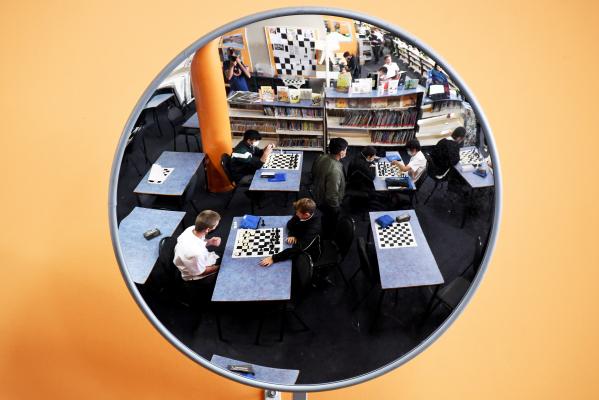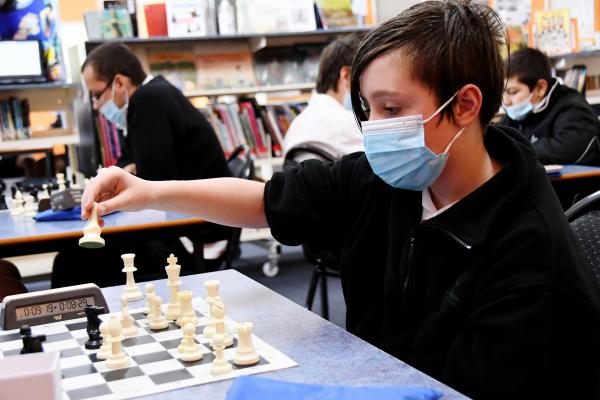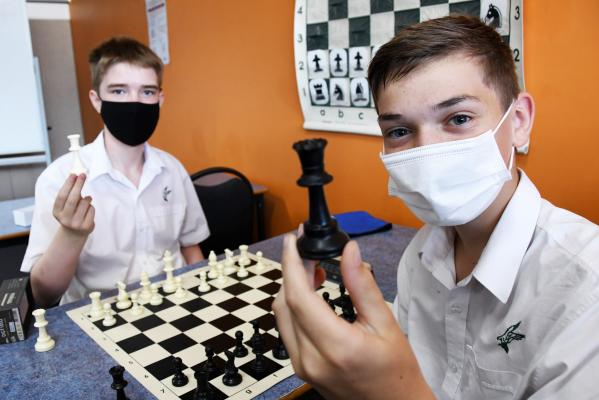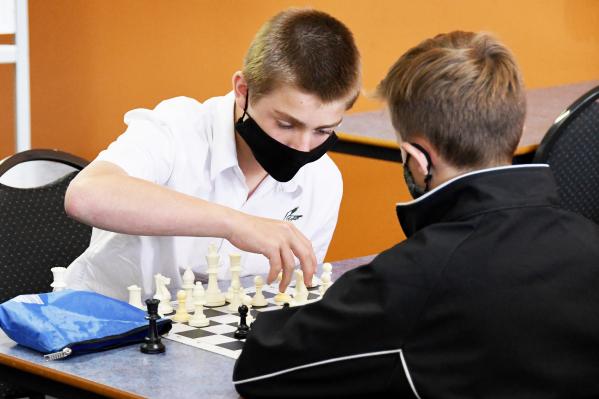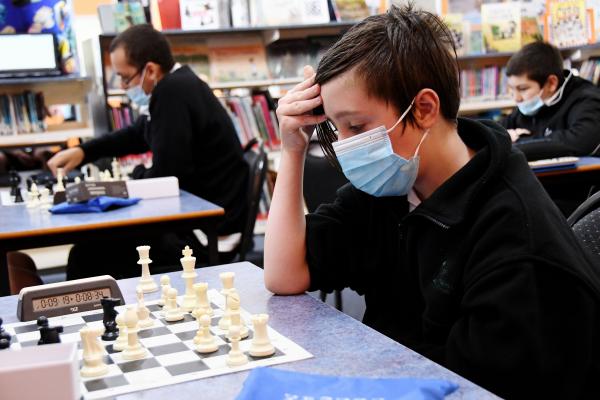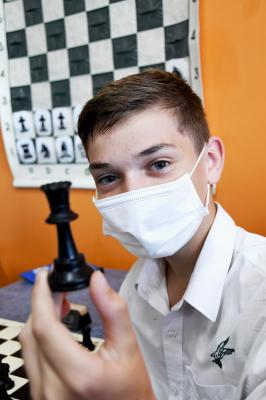By Mikayla van Loon
The Queen’s Gambit may have sparked people’s interest for chess but for these Pakenham Secondary College students, chess forms part of their life.
Students play daily at recess and lunch and although it’s not compulsory, most of the 30 students make it to each session.
“We just have sheer determination, the kids just love it. It’s an environment where it is safe, they don’t have to be here, they come because they want to be, so usually we don’t have issues with behaviour,” French teacher and chess club coordinator, Sergio de Lima said.
The library bustles with excitement as everyone gets themselves ready and then with the start of the game comes concentration.
Mr de Lima said the chess club is a sanctuary for many of the students who play daily.
“The number of these kids that would not really have a place to be and could be victims of bullying and definitely here, none of that happens,” Mr de Lima said.
“We have a lot of kids from the Program for Students with Disabilities, some with learning disabilities, social behaviour problems and they thrive here in chess. We’ve had champions before who were from that category, with ADHD and different spectrums of autism and they do very well in chess.”
A new study done by Monash University and Deakin University has found that children who play chess from a young age are less risk averse than their classmates.
More than 400 Year 5 students took part in a 30-hour chess program to learn the game.
Professor Asad Islam, Dr Wang Sheng Lee and Dr Aaron Nicholas observed the cognitive and non-cognitive behaviour of these students, including risk, time management and ability to focus for ten months after the study was done.
Mr Islam said exposure to win/loss situations, competition and strategic risk-taking is an important part in a childs education and is something chess can provide.
“Risk and reward is a concept that is articulated well in the game of chess. Players often sacrifice pawns, knights and bishops if it helps checkmate the opponent’s king and win the game. Such sacrifices are inherently risky because if one’s calculations are faulty, the sacrifice could prove to be fatal, eventually leading to a quick loss,” professor Islam said.
“Children need to know how to take calculated risks. If children are too risk averse it might prevent them from swimming at the beach, going to a public park or participating in contact sports for risk of injury.”
These teachings extend to knowing what is a calculated risk and what is reckless behaviour later in life, professor Islam said.
Mr de Lima agrees that chess builds certain skills in children including concentration, memory, dealing with loss, building resilience, abstract thinking and problem solving.
He hopes chess will also help his students understand the difference of some risks compared to others.
“When we talk about risks, there is of course a negative side of it and you don’t want them to take certain risks but we can definitely see them building resilience and dealing with problems and going for it,” Mr de Lima said.
Aiden Clare, Year 7 champion in the Pakenham Secondary Colleges’ chess tournament, said he likes the benefits of chess.
“It’s a strategy game and you need to use your brain to play the game, so it improves the development in your brain and it improves your memory, which is a big problem with me because I have a bad memory.”
Others enjoy the game because of its complexity.
“I like that it’s really complicated and there’s so many different ways that you can play the game. I’ve heard someone say that in five moves there can be a couple of thousand combinations of games and I just really like that,” Year 8 student, Jackson Hooper said.
Whatever their reason is for playing, Mr de Lima’s students can’t get enough – winning state and national competitions numerous years in a row.
“I think the difference for us here is that we play everyday, recess and lunch which makes us able to compete against some of the private schools where they have coaches and private tutors and all that,” Mr de Lima said.
Unable to play in tournaments last year due to COVID-19, students are eager to try their luck at their in-school tournaments against each other.
Mr de Lima said an online system has been created for the students to tally their wins and losses and find who they are playing each round.
At the end of the tournament, the winners will score a canteen voucher supplied by the school.

